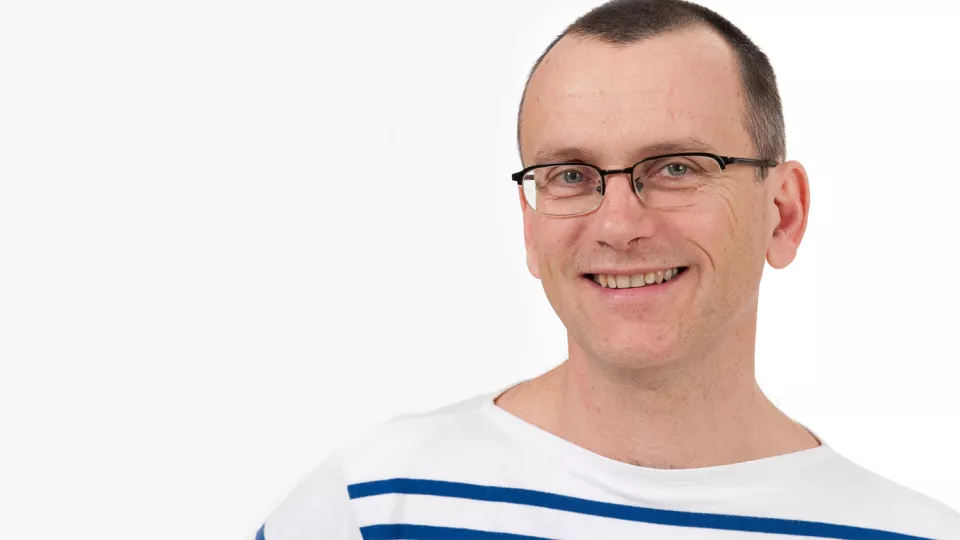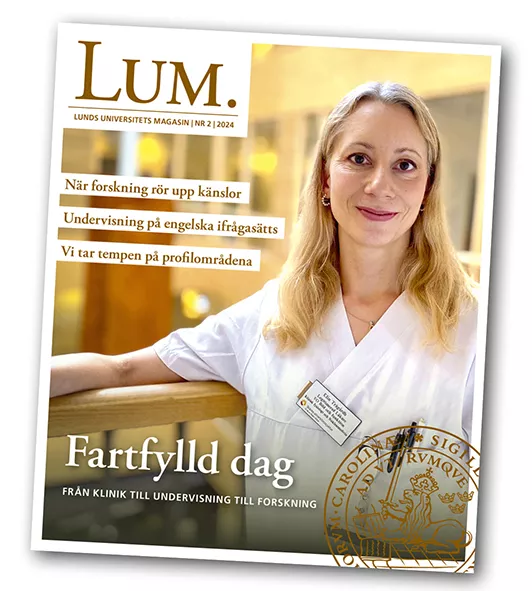Hervé Corvellec is a professor in business administration. His latest research focuses on the prevention of organisational waste and he says that absolutely everything that leaves a negative footprint after use should be considered waste. He does not believe recycling is sufficient; the major environmental gains come when we choose not to produce waste or, ultimately, consume.
“Lund University needs to get better at preventing waste. By the time you get to recycling, it is already too late… ”, says Hervé Corvellec.
He says the qualification system needs to be reviewed in order to reduce the University’s waste in the form of carbon dioxide emissions. Currently, doctoral students are expected to participate in many conferences to acquire further qualifications, senior lecturers have to travel for international collaborations and professors are expected to travel around presenting their work.
“The whole academic culture rewards mobility and thereby travel”, he says.
Hervé Corvellec argues that we need to reflect on internationalisation each time it entails a flight.
“Is the trip worth the carbon dioxide emissions? We have to weigh up the pros and cons”, says Hervé Corvellec, who these days primarily chooses conferences in Europe to which it is possible to travel via train.
When Seth Wynes, former visiting researcher at Lund University, in a study*, compared the academic productivity of 128 researchers with how many flights they took, it produced several interesting results. The researchers who did not fly at all had low academic productivity. However, researchers who took two flights per year had the same H-index as those who took five flights. The H-index is a measurement in which the number of academic articles are considered together with the impact of those articles.
In addition, there was no connection between more flights and the number of co-authors of the articles; this is something often considered a sign of quality.
“We cannot assume that a doctoral student or researcher is better because they have attended more international conferences”, says Hervé Corvellec.
Lund University has a high profile in sustainability issues, with the Agenda 2030 Graduate School, among others, drawing considerable interest from other higher education institutions. In many areas, we also conduct sustainability research, which is often interdisciplinary. In addition, Lund University’s Sustainability Forum functions as a bridge between academia and society, which disseminates research and leads to collaboration that makes a difference.
However, Hervé Corvellec says it has to go hand in hand with demonstrating that it is possible to reduce carbon dioxide emissions in accordance with the Paris agreement. He hopes that ‘excellence in minimal carbon dioxide’ will become a motto for Lund University.
“It turns into a credibility issue if we cannot manage to clean up at home to make it possible to reach the 1.5 degree target. ‘Do as I say, not as I do’ works as little for a world-leading university as it does for a parent…”
Hervé Corvellec also thinks the University needs to review its recruitment campaigns for far-flung international students.
“Attracting students from Peru or New Zealand compared to Denmark or Germany: is it worth the increased emissions these students bring with them?”
When it comes to European students, he also thinks the University needs to consider how we can influence them to use low-carbon travel. Personally, Hervé Corvellec lectures in the Master’s programme specialising in Sustainable Service Management to almost exclusively international students. Despite the subject, many of them fly. It may be home to their parents in Europe over the weekend but it is also not unusual for them to choose to complete their field studies in another country, such as Portugal.
“It is not about the quality of the studies. It is just that there are no good incentives to choose a closer alternative – that is where the University needs to look at what it can do to create incentives.”
*Wynes, S., Donner, S. D., Tannason, S., & Nabors, N. 2019. Academic air travel has a limited influence on professional success. Journal of Cleaner Production, 226: 959-967.



